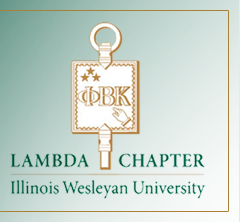Graduation Year
2015
Abstract
Adapting for the screen is an arduous task – one that never seems to fulfill readers’ expectations. Screenwriter Charlie Kaufman expertly illustrated this phenomenon with his award-winning script, Adaptation (2002). In the film, Nicholas Cage plays both Charlie, a scatterbrained but devoted screenwriter, and Donald, Charlie’s laid-back twin. Charged with adapting Susan Orlean’s The Orchid Thief, Charlie lets his fear of failing to meet his audience’s expectations turn his work into a nightmarish, insurmountable task. When Charlie’s boss suggests that he make the book’s two main characters fall in love in the film version, he challenges the deviation from the plot of the novel: “…the book isn’t like that, and life isn’t like that. You know, it just isn’t. And…I feel very strongly about this” (Adaptation). Like many adapted screenplay writers, Charlie remains in a constant battle with himself – stay true to the novel, or please his boss by embellishing to boost box office ratings. Charlie’s dilemma begs the question: What makes a good film adaptation? The answer, of course, is relative. The results of such a survey would be skewed by the opinions of readers and viewers. But, perhaps, there is another way of examining adaptation by isolating specific components of the text in question.
My goal is to discover the role of imagery in creating a successful film adaptation. I will accomplish this by comparing imagery from three prominent novels – Jane Austen’s Pride and Prejudice (1813), Ian McEwan’s Atonement (2001), and Leo Tolstoy’s Anna Karenina (1877) – with imagery from their film adaptations by award-winning director, Joe Wright.
Recommended Citation
Dhue, Hannah
(2015)
"Text to Screen Adaptation: Examining Reverse Ekphrasis in Joe Wright’s Films Adapting for,"
CrissCross: Vol. 3:
Iss.
1, Article 2.
Available at:
https://digitalcommons.iwu.edu/crisscross/vol3/iss1/2
Included in
Arts and Humanities Commons, Life Sciences Commons, Physical Sciences and Mathematics Commons, Social and Behavioral Sciences Commons


Comments
Text to Screen Adaptation: Examining Reverse Ekphrasis in Joe Wright’s Films was a recipient of the 2015 Phi Beta Kappa Liberal Arts Scholar Award at Illinois Wesleyan University. For more information, please see the press release.